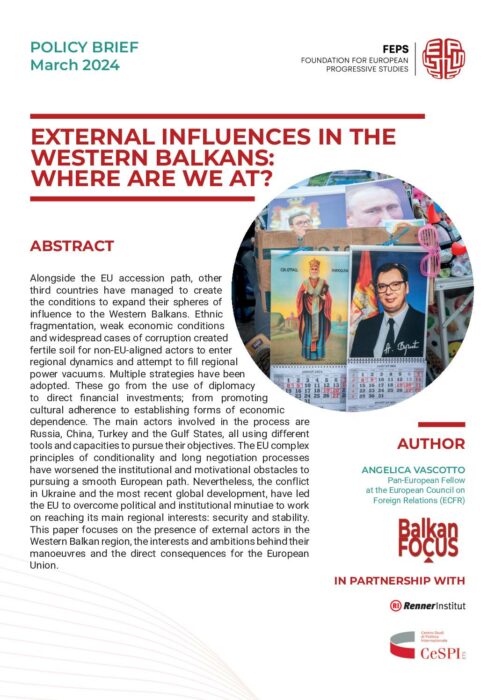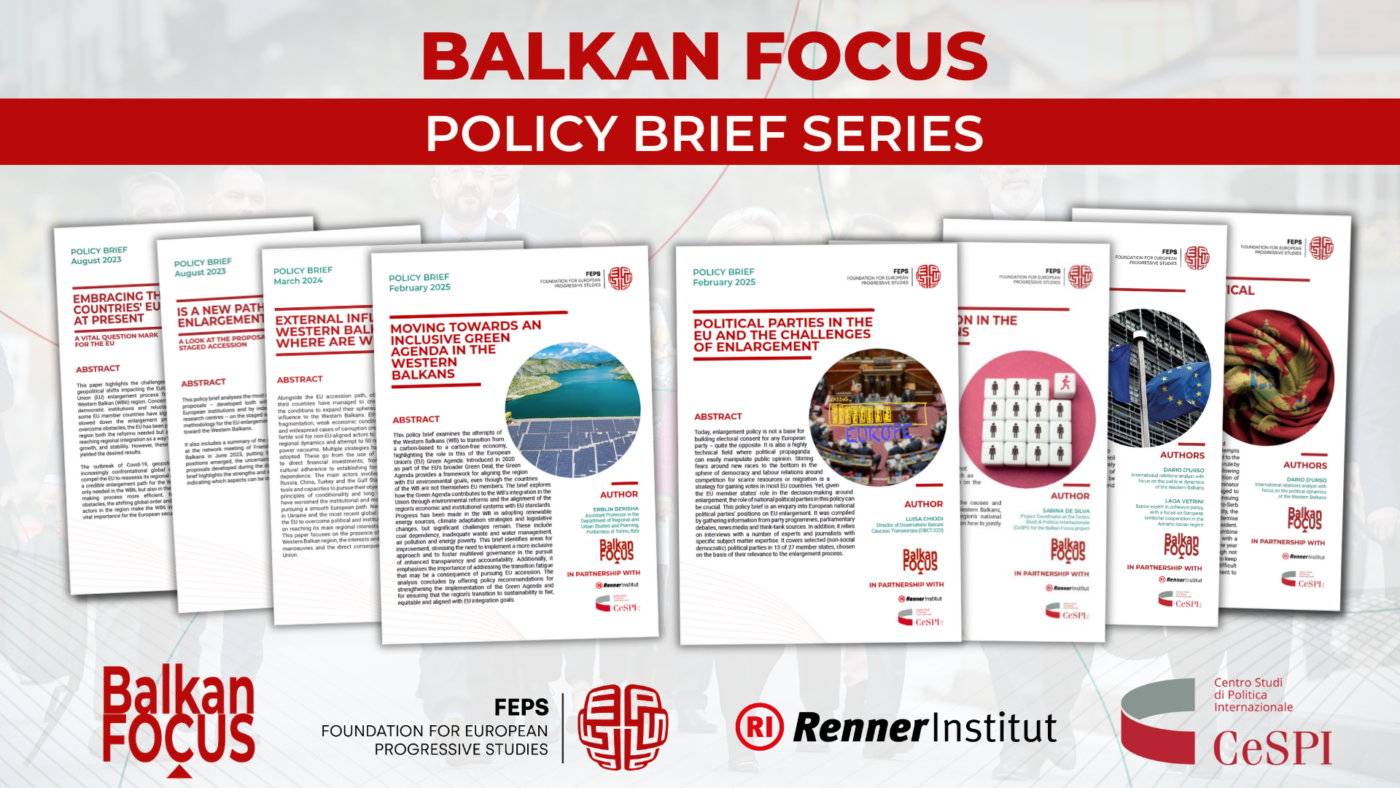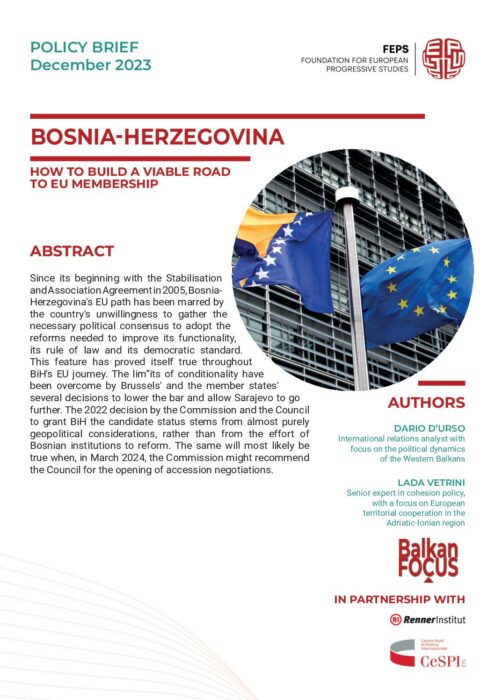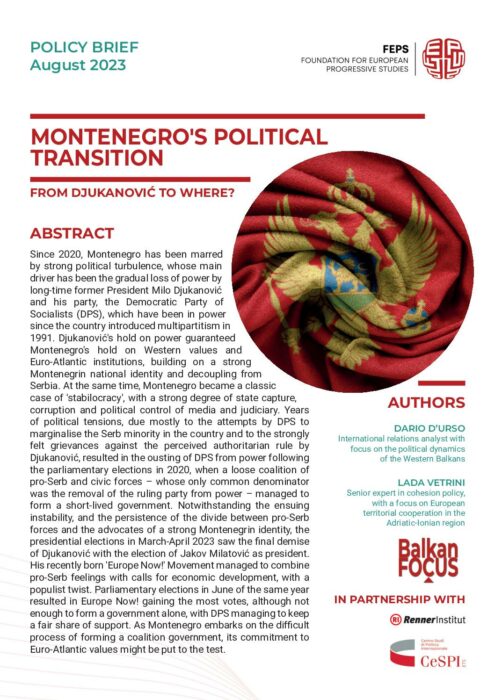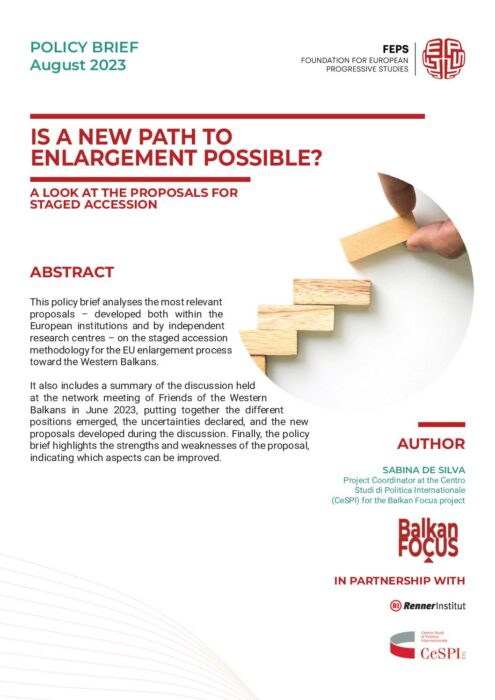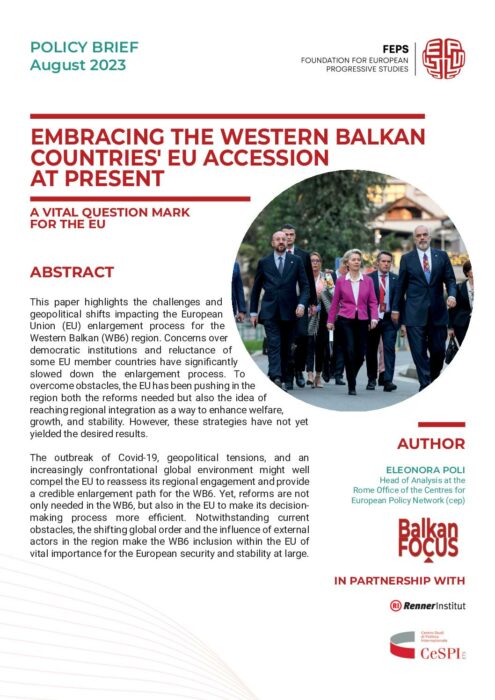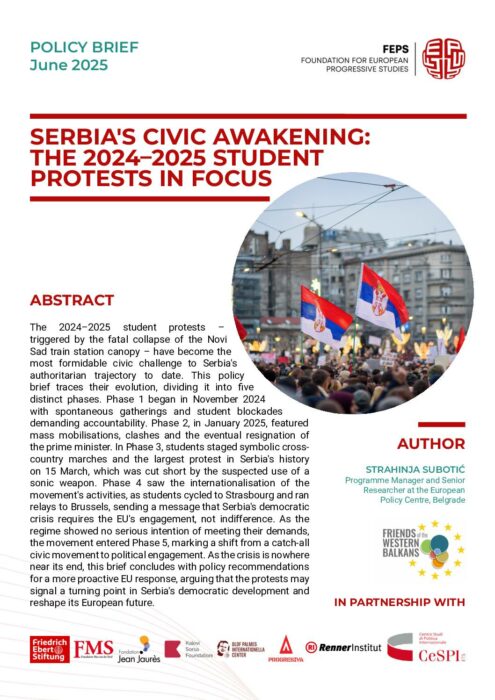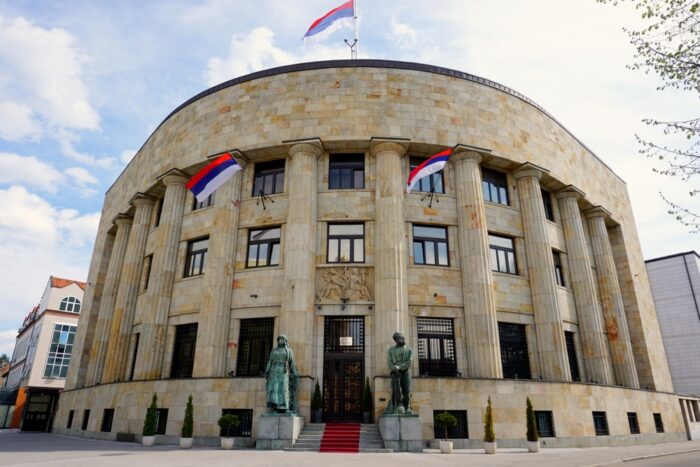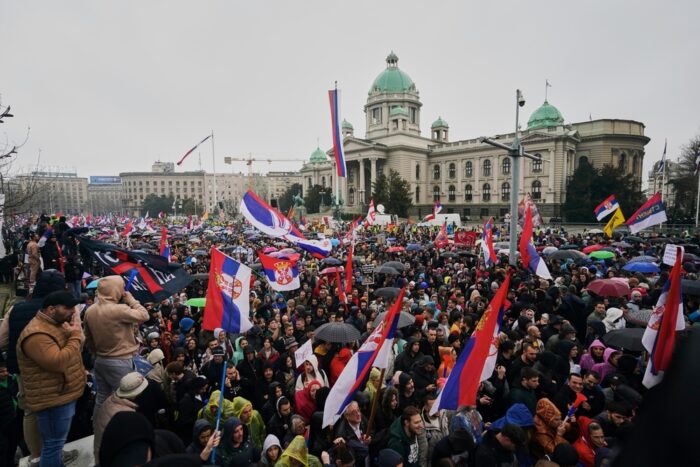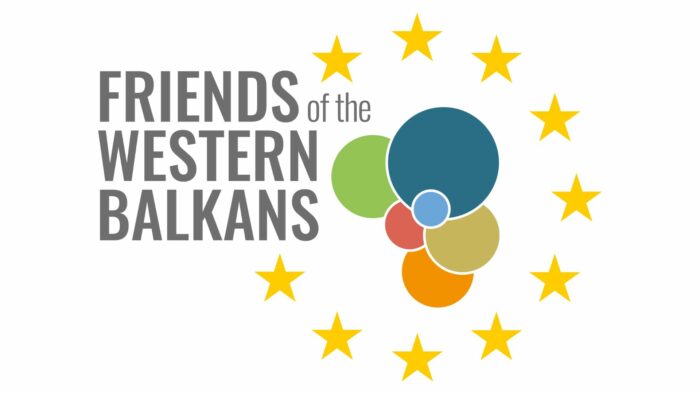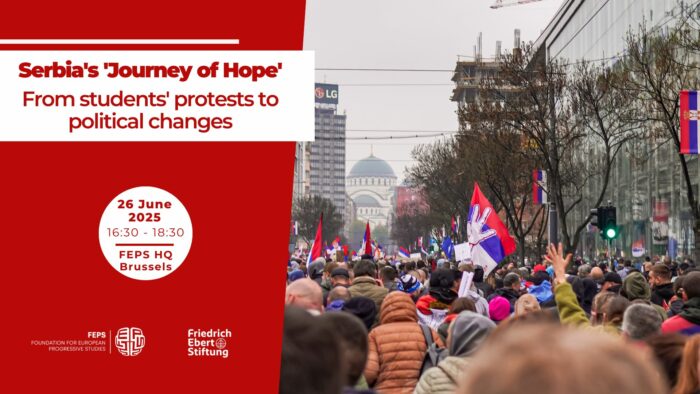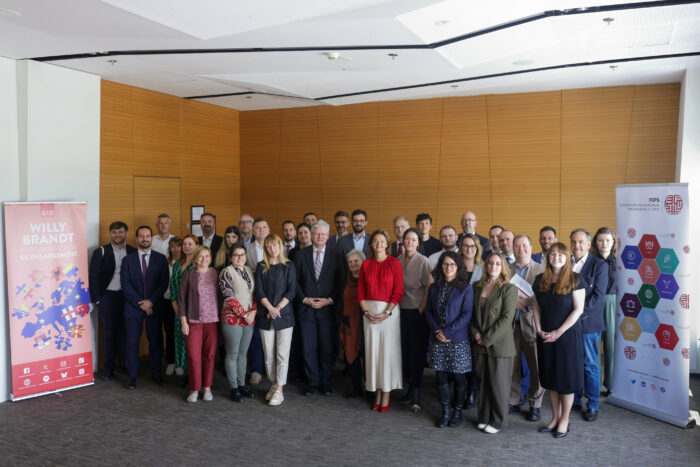Network
Related publications
Find all related publications
Publications
Find all related Progressive Post
Progressive Post
Find all related events
Events
Past
20 - 22/11/2025
Belgrade, Serbia
26/06/2025
FEPS HQ, Brussels
15 - 16/05/2025
Ljubljana, Slovenia (Expert meeting)
Load more...
Find all related Audiovisual
Audiovisual
Find all related news
News
Find all related in the media
In the media
NATO-bővítés sok vitával: érvek, ellenérvek és lobbik a Clinton-elnökség idején
by BBC History 07/07/2024
EU-VÍZIÓ, Dull Szabolcs újságíró Andor Lászlóval beszélget
by MÚOSZ Magyar Újságírók Országos Szövetsége 11/04/2024

